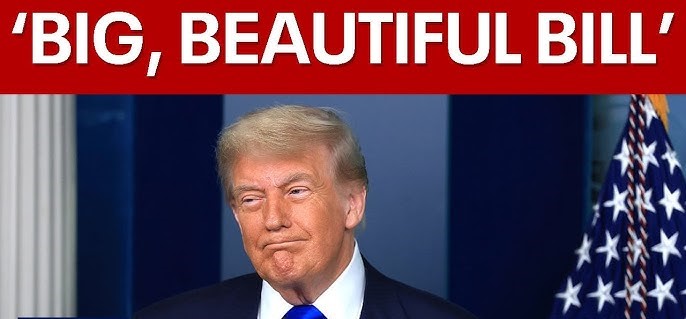Washington: After days of tense standoffs and backroom bargaining, a group of House Republican (Grand Old Party) holdouts has thrown its support behind President Donald Trump’s massive tax and spending package, paving the way for a key legislative victory. The shift follows intensive lobbying by Trump and GOP leaders, who worked to flip skeptical conservatives and wary moderates alike.
Early Thursday morning, the House narrowly advanced a critical procedural vote — 219 to 213 — setting the stage for final passage of Trump’s multi-trillion-dollar plan. Only one Republican, Rep. Brian Fitzpatrick, ultimately opposed the rule to bring the bill to the floor.
The legislation, which cleared the Senate earlier this week, pairs sweeping tax cuts and hefty boosts for defense and border security with deep spending reductions, including historic trims to Medicaid and food assistance. Some GOP hardliners had threatened to derail the effort over projections it would add $3.3 trillion to the deficit, while moderates fretted about impacts on healthcare.
Determined to meet a self-imposed July 4 signing deadline, Trump and Vice President JD Vance spent hours meeting with lawmakers at the White House, bringing in figures like Dr. Mehmet Oz to address Medicaid concerns. Their efforts appeared to pay off, with Republicans like Rep. Dusty Johnson of South Dakota emerging from meetings to report, “Members are moving to yes.”
Still, resistance remains. Firebrand Rep. Chip Roy and the House Freedom Caucus continue to demand deeper spending cuts, with Roy insisting, “It’s not ‘take it or leave it.’ We need more restraint.” Meanwhile, Rep. Thomas Massie dismissed the rush to finish by Independence Day, saying, “There’s no reason to bankrupt the country because you want to go shoot off some fireworks.”
House Speaker Johnson now faces the delicate task of steering his divided caucus through the final vote, expected later Thursday. A victory would hand Trump a defining achievement in his second term, delivering on campaign promises like no taxes on tips or overtime pay, tougher border measures, and work requirements for safety-net programs — though it also sets up fierce battles ahead of the 2026 midterms.

























